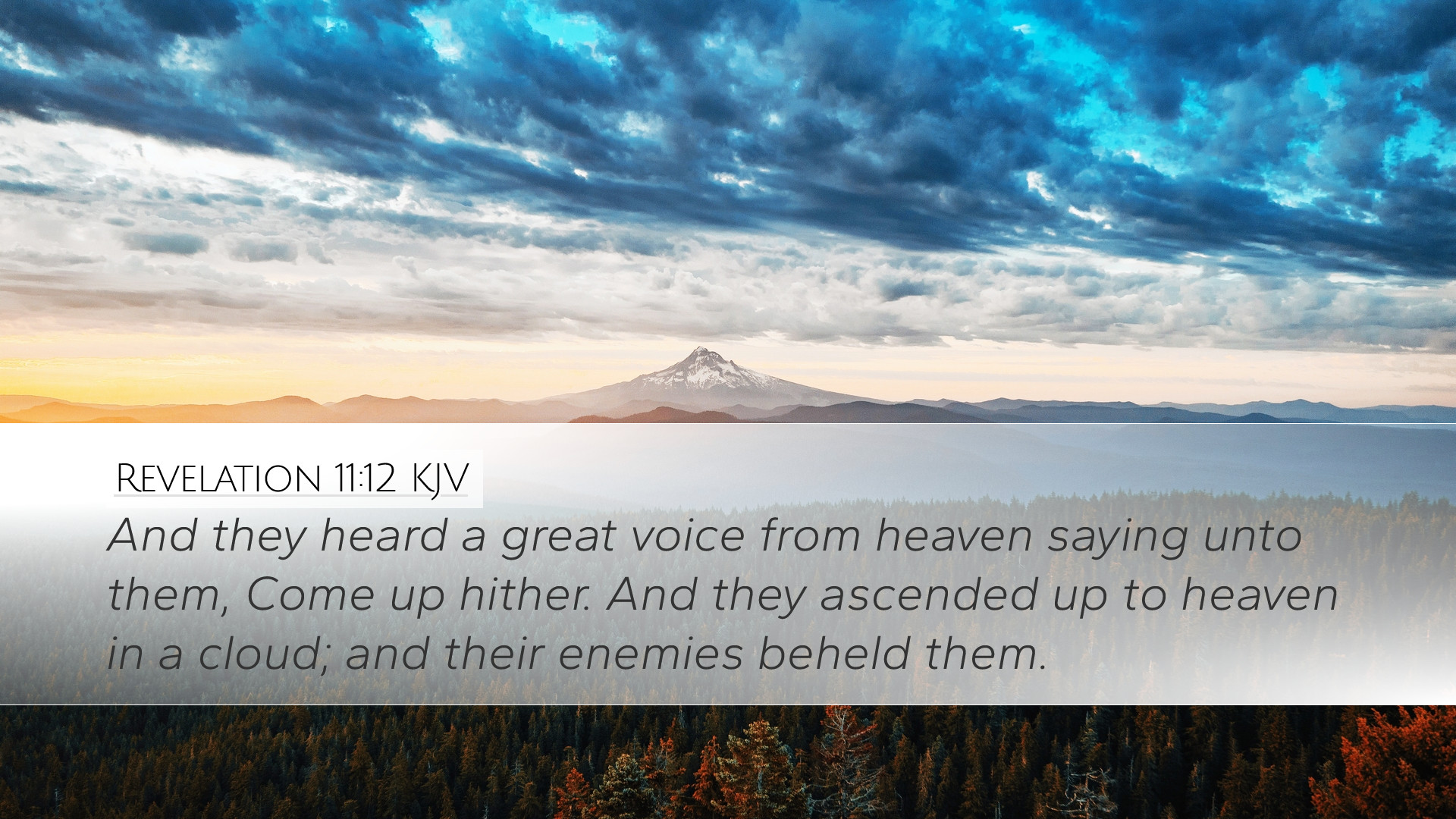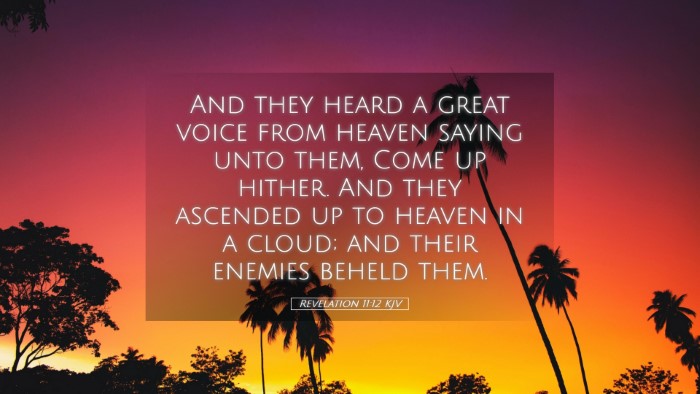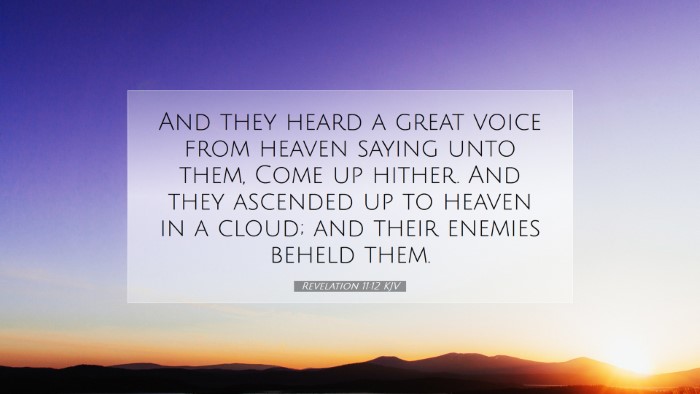Commentary on Revelation 11:12
Text of Revelation 11:12 (KJV): "And they heard a great voice from heaven saying unto them, Come up hither. And they ascended up to heaven in a cloud; and their enemies beheld them."
Introduction
The passage of Revelation 11:12 is profound, encapsulating themes of divine calling, resurrection, and the ultimate vindication of God's messengers. In the larger narrative of the Book of Revelation, this verse captures a moment of transition, where the two witnesses, who represent the faithful witnesses of God, are summoned back to their heavenly abode.
Contextual Overview
This verse is situated within the context of the vision of the two witnesses, outlined in Revelation 11:3-12. These witnesses represent the prophetic voice during a tumultuous period. Their ministry is marked by power and opposition, and their eventual ascension serves as a demonstration of God's authority over earthly powers.
Insights from Matthew Henry
Matthew Henry emphasizes the divine affirmation of these witnesses' role and mission. He notes that the "great voice from heaven" signifies God's direct intervention in the narrative of human history. This call to ascend speaks to the anticipated vindication of the righteous amidst tribulation. Henry also highlights the visibility of their ascension to enemies, underscoring the idea that those who oppose God will witness His ultimate victory over them.
Insights from Albert Barnes
Albert Barnes provides a detailed analysis of the significance of the ascension. He points out that the phrase "Come up hither" indicates a divine invitation that reflects the internal reward of faithful service. He links this event to the broader Christian hope of resurrection, suggesting that just as Christ ascended, so too will faithful believers. Barnes posits that the enemies' observation of this event serves as a stark reminder of the consequences of opposition to God's will.
Insights from Adam Clarke
Adam Clarke interprets this passage with a focus on its symbolic implications within the Christian eschatological framework. He connects the ascension of the witnesses to prophetic imagery, asserting that their ultimate calling home signifies both judgment on the opposition and the fulfillment of God's promise. Clarke also points out the "cloud" mentioned in the verse, suggesting it may represent divine glory or the presence of God, further indicating the sacred nature of the witnesses' ascension.
Theological Themes
- Divine Commissioning: The heavenly call to ascend signifies God's endorsement of their mission, emphasizing that true authority comes from God alone.
- Victory Over Adversity: This moment reflects the believers' hope of being raised in the face of tribulation, an encouraging promise for those enduring hardships.
- Consequences for the Opponents: The sight of the ascension acts as a prophetic challenge to those who would oppose the divine message, illustrating that God's ultimate justice prevails.
- Symbolism of Clouds: The imagery of being taken up in a cloud evokes earlier biblical events such as the ascension of Christ, linking the fate of the faithful to Christ’s resurrection.
Pastoral Reflections
For pastors and preachers, Revelation 11:12 serves as a powerful text for affirmation of faith amidst trials. It encourages believers that despite earthly struggles, God's call and vindication are assured. It reminds the church of its prophetic role in the world, calling for perseverance and faithfulness, even when faced with opposition.
Conclusion
The ascension of the two witnesses as depicted in Revelation 11:12 embodies the hope, promise, and ultimate redemption that characterize the Christian faith. As various public domain commentaries illuminate, the verse serves to strengthen our understanding of divine authority, prophetic witness, and the assurance of God’s kingdom breaking into human history. This insight is invaluable for pastors, students, and theologians in their continued study and teaching of the Scriptures.


